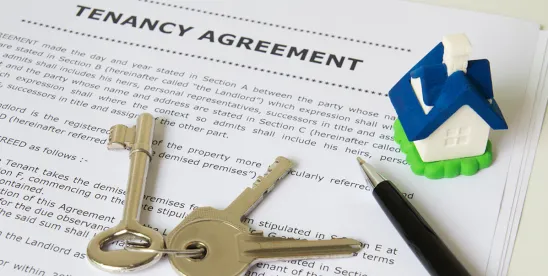The City of Chicago recently passed an ordinance that will require landlords who lease multi-family units inside a specified six-square mile radius in Chicago, to tender a Right of First Refusal to their tenants before selling the building to a third party. The aim of the ordinance is to chill gentrification and it will impact parts of Humboldt Park, Logan Square and other neighborhoods. This ordinance goes into effect on October 9, 2024. This ordinance will also make demolishing properties in the impacted areas far more expensive by its substantial increase in demolition “surcharges.”
The ordinance, referred to as the Northwest Side Housing Preservation Ordinance, passed with a mandate vote of 44-3. It was supported by numerous community organizations who were concerned that multi-unit properties were being demolished and replaced by more expensive single-family properties. It is intended to preserve more affordable housing units.
However, this ordinance did not pass without opposition. A few aldermen and trade groups objected and contend this kind of red tape is counter-productive and deters investment into Chicago neighborhoods. The ordinance requires 30 days’ notice to the tenants if an offer is made for the property. The tenants will then have 90 days to determine if they want to form a “tenant union” and purchase property together. Accordingly, this ordinance will greatly increase closing timeframes. Numerous brokers have been quoted as predicting this ordinance will deter developers from the applicable areas due to complications it causes the seller.
Chicago treats landlords who run afoul of tenant protections very harshly. Practitioners are well advised to keep this ordinance in mind and not overlook its requirements while representing sellers. As this ordinance will not apply to most of Chicago, and is novel in its design, many sellers and brokers may not be aware of it. Deals should be structured well in advance with time allowed to accommodate this ordinance while representing parties in the subject neighborhoods.
According to an editorial that appeared in the Chicago Tribune on October 4, the ordinance had been sold as an anti-gentrification measure intended to prevent longtime renters from losing their homes to renovation, redevelopment and sales.
Aside from adding various fees for developers, even if they are planning multi-family buildings, the ordinance gives tenants 90 days for the right of first refusal to buy the building in which they live to decide if they want to exercise this right and then another 120 days to see if they can get financing or more than 6 months.
The article points out if someone wants to sell a three-flat and buy a different one elsewhere and if they sold the old building for more than they paid, they would normally be able to defer tax on that capital gain by investing the proceeds into a new building under an IRS tax code provision called a 1031 “like-kind” exchange. But they would have to do that within 180 days, a time frame that won’t work under this new ordinance. The article discusses several other obvious downsides to the ordinance and can be found here.




 />i
/>i

